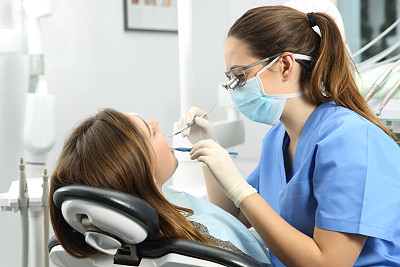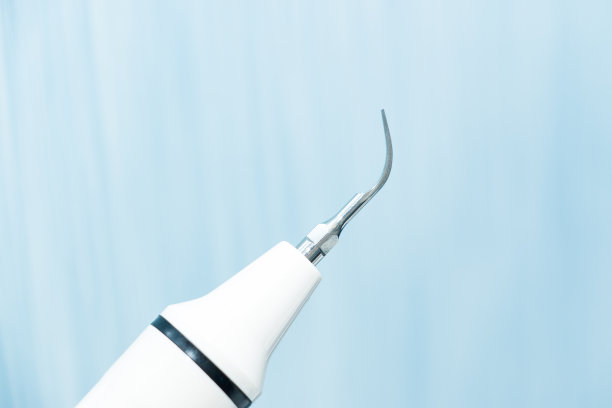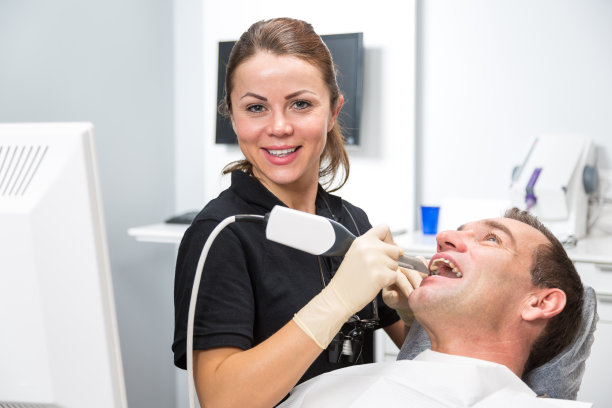Summary: Dental fillings are a common procedure for restoring teeth damaged by decay or fracture. However, certain essential precautions should be taken to ensure optimal oral health before undergoing this treatment. It鈥檚 crucial to understand the importance of selecting a qualified dentist, practicing good oral hygiene, discussing possible allergies or medical conditions, and preparing for aftercare. This article will explore these key areas in depth, providing guidance that is vital for anyone considering dental filling procedures. By adhering to these precautions, patients can achieve the best possible outcomes and maintain their overall dental health.
1. Choosing a Qualified Dentist for Dental Fillings

One of the most significant steps before undergoing dental filling procedures is selecting a qualified dentist. Its important to research the dentists credentials, experience, and any specialty in restorative dentistry. A qualified dentist will be well-versed in different types of filling materials and their specific applications, ensuring that you receive the best option for your dental situation.
Check for reviews or testimonials from previous patients to gain insights into their experiences. A reputable dentist will also offer a transparent consultation where you can discuss your concerns regarding the procedure. This initial interaction can give you confidence in their skills and approach to patient care.
Moreover, consider the dental clinics advanced technologies and equipment. Clinics that invest in modern tools often enhance the efficiency and comfort of dental procedures. Always trust your instincts; if something feels off, it鈥檚 prudent to seek a second opinion or choose another dentist.
2. Importance of Good Oral Hygiene Practices
Prior to undergoing dental fillings, maintaining excellent oral hygiene is crucial. Individuals should brush and floss regularly to minimize the presence of bacteria in their mouths. Good oral hygiene can prevent further decay and the need for additional fillings in nearby teeth.
In the days leading up to your appointment, focus on minimizing sugary and acidic food intake, which can exacerbate decay. Additionally, consider using an antibacterial mouthwash to boost your oral health. Healthy gums create a more favorable environment for the longevity of any fillings.
Also, inform your dentist about your usual dental care routine. This information can help them provide personalized recommendations tailored to your needs to further enhance your oral hygiene in preparation for the filling procedure.
3. Discussing Medical Conditions and Allergies
Before any dental procedure, its essential to have clear and open communication with your dentist about any medical conditions you may have and allergies to materials. Some filling materials, such as composites, may contain substances that individuals with specific sensitivities can react to adversely.
Patients with conditions such as asthma or diabetes should inform their dentist, as these may influence the type of anesthesia used or the method of procedure. Moreover, if you are on any medications, it鈥檚 wise to disclose that information so your dentist can account for potential interactions during the treatment.
Being proactive and transparent about your health history can significantly mitigate risks associated with dental fillings, ensuring a smoother and safer procedure. Always feel empowered to ask questions and clarify any doubts regarding materials used or procedures being performed.
4. Preparing for Aftercare and Recovery
After undergoing dental fillings, proper aftercare is vital for a smooth recovery. Your dentist will likely provide specific instructions regarding pain management and what types of food are acceptable shortly after the procedure. Its important to follow these recommendations strictly to minimize discomfort and promote healing.
If you received anesthesia, avoid chewing until the numbness wears off to prevent accidentally biting your tongue or cheek. Gradually reintroduce hard foods to avoid stressing the new filling while it settles in your tooth.
Additionally, schedule a follow-up appointment to ensure that your filling is properly placed and functioning. This checkup can help spot any potential complications early on, allowing for timely intervention if necessary.
Summary:
In conclusion, taking essential precautions before undergoing dental filling procedures is imperative for achieving optimal oral health. From selecting a qualified dentist and maintaining good hygiene to discussing any medical concerns and preparing for aftercare, each step plays a vital role in ensuring a positive outcome. By being proactive and informed, patients can navigate the filling process with confidence.
This article is compiled by Vickong Dental and the content is for reference only.
Vickong Dental
Vickong Dental is a large medical group established in Hong Kong in 2008 by professors from well-known medical universities in Guangdong and Hong Kong, as well as medical doctors from key national '985' universities (including Master's supervisors and senior professors). The chain of branches brings together expert dentists with PhDs and Master's degrees from Hong Kong and Mainland China, committed to providing high-quality dental treatment.
"Vickong Dental Practices the University Motto of 'Healing and Serving Society,' with a Stable Operation for Sixteen Years. It Has Been honored with Hong Kong Enterprise Leaders's Choice,' and is a Global Trusted Implant Center for the Nobel Implant System. Recommended by Hong Kong Metro Broadcast and Guangdong Television, it Serves Customers from Over Thirty Countries and Regions, Gaining the Trust and Favor of Citizens from the Guangdong-Hong Kong-Macau Greater Bay Area and Surrounding Cities.

Thousands of customers' unanimous praise
The most recognized and highly recommended dental service by customers in the Guangdong-Hong Kong-Macau Greater Bay Area
We Ensure You Receive Detailed Care and Attention Here
Hong Kong standards, Shenzhen prices, Your Trusted English-speaking dentists

Vickong Dental Medical-Grade Instrument Disinfection Process
Vickong Dental Medical-Grade Instrument Disinfection Process

Vickong Dental Chain: A Warm and Comfortable Environment for Treatment






Appointment Hours

Q&A
Why choose Vickong Dental?
Vickong Dental practices the university motto 「Medicine to Benefit Society」, with each branch bringing together highly qualified dentists with doctoral and master’s degrees from Hong Kong and the Mainland, and has maintained seventeen years of steady operation。Recipient of 「2024 Hong Kong Enterprise Leaders Brand」, 「2025 Hong Kong Enterprise Leaders Brand」, a Nobel Biocare Global Trusted Implant Center, and a brand recommended by Metro Radio Hong Kong and Guangdong TV。
To date, we have served customers from more than thirty countries and regions,earning exceptionally high word-of-mouth recognition and trusted recommendations from residents across the Guangdong-Hong Kong-Macao Greater Bay Area and surrounding cities
We have eight major branches in Zhuhai、Shenzhen,and a consultation and service assurance center in Hong Kong,so you can book a free consultation at any time for any questions,which is very reassuring.
If I do not accept the quotation after the CT scan, will I be charged??
No! As long as the actual treatment has not started, you will not be charged any fees.
Will there be any additional charges during the treatment process?
No, there won’t be any additional charges. Before treatment begins, we will clearly explain the treatment plan and its corresponding fees. Only after the patient agrees and signs the consent form will we proceed with the dental service.
Can I pay in Hong Kong dollars?
Yes. Vickong Dental accepts payment in Hong Kong dollars. The amount will be converted based on the exchange rate of the day, and the applicable rate will be clearly communicated to you in advance.
Can I reschedule my appointment at any time?
Yes. Please contact us via **WeChat** or **WhatsApp** as early as possible, providing your original appointment time and details, along with your preferred new date and time slot for rescheduling.













